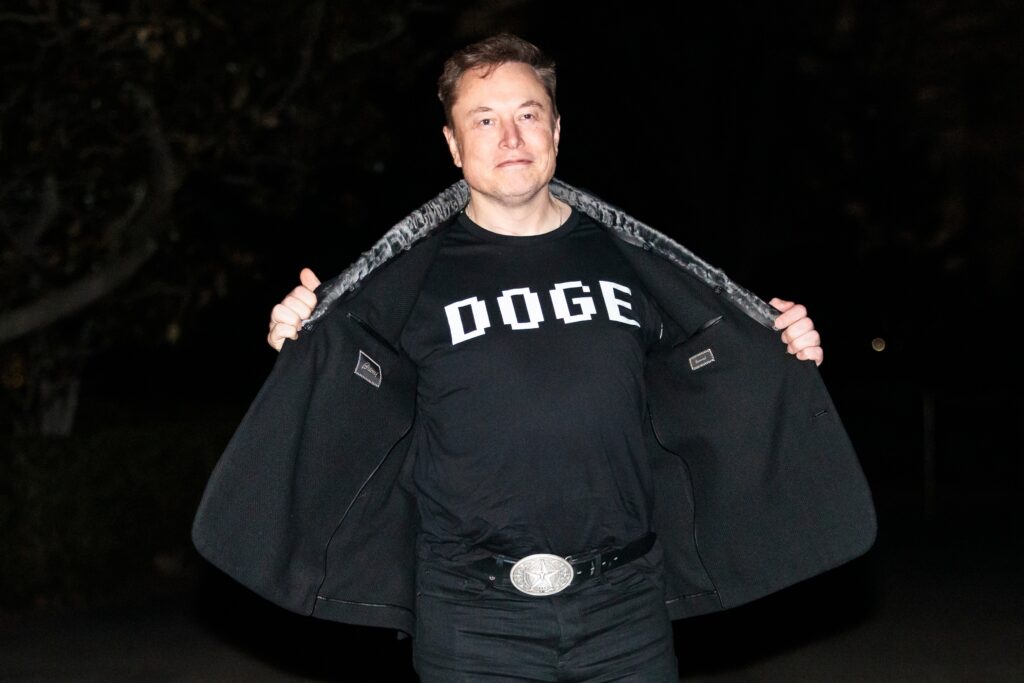Elon Musk’s Department of Government Efficiency (Doge) says it has saved over $10 billion per week since Donald Trump’s presidency began. Former President Trump praised the agency’s cost-cutting efforts in an interview on April 23, saying, “Nearly $200 billion and growing fast,” referring to Doge’s reported achievements.
Doge states it cancels outdated contracts, grants, and leases from previous administrations while also targeting fraud and cutting government workforce numbers. However, a detailed review reveals that many of Doge’s reported savings lack full proof or transparent documentation, raising questions about the true scale of the agency’s success.
How Doge Reports Its Claimed Savings
In October, Musk announced his goal to reduce government spending by “at least $2 trillion.” By April 10, that target was halved to $150 billion, aiming for completion by 2026 through waste and fraud elimination.
The U.S. federal budget for the last fiscal year stood at $6.75 trillion, putting Doge’s savings in perspective.
Doge updates its total savings regularly on its official site, listing $160 billion as of April 20. However, fewer than 40% of these savings come with detailed breakdowns or accessible receipts.
A review conducted by Financial Mirror on April 23 found that only about half of the itemized savings linked to contracts, grants, and leases had credible documentation. Some accounting mistakes were also found, such as Doge incorrectly reporting an $8 billion saving from an $8 million contract.
Doge stated it is working to upload all receipts “in a digestible and transparent manner” but admitted that some documents remain “unavailable for legal reasons.”
Scrutiny Over Doge’s Biggest Savings Claims
Our team closely examined Doge’s four largest savings reports that included attached receipts. These savings totaled $8.3 billion according to Doge. However, independent experts raised concerns about exaggerated claims.
Most linked receipts were pulled from the Federal Procurement Data System (FPDS), which tracks federal contract information. Yet, as David Drabkin, a former federal contracts expert, explained, FPDS lists only maximum contract values, not actual money spent.
For example, contracts related to vaccine research often show wide differences between projected and actual costs.
One major claim involved canceling a $2.9 billion contract for a migrant children’s facility in Texas. Doge based the savings on projected costs through 2028. Yet, because the contract was renewed yearly, future spending was not guaranteed.
A source familiar with the facility estimated real savings were closer to $153 million based on monthly operational costs. They added that the center never housed its full 3,000-child capacity, usually serving around 2,000 children.
The Administration for Children and Families and the Department of Health and Human Services have not commented yet.
Additional Major Claims Under Review
Doge’s second-largest saving claim involved canceling a $1.9 billion IRS contract with Centennial Technologies. Documents showed the contract’s maximum value but no record of any actual payments.
Drabkin emphasized that poor government record-keeping often causes delays in updating spending data. Although the contract began in August 2024, Centennial Technologies’ CEO confirmed it was canceled during Biden’s presidency, not under Musk’s direct efforts.
Attempts to reach Centennial Technologies for further comments went unanswered.
Another large saving involved canceling a Department of Defense IT contract with A1FEDIMPACT. Doge reported saving $1.76 billion from a contract valued at $2.4 billion. Again, no clear records exist showing the actual amount spent.
The Pentagon and A1FEDIMPACT have yet to respond to information requests about this matter.
Finally, Doge listed a $1.75 billion saving from canceling a USAID grant to Gavi, a global vaccine organization. However, data from USASpending.gov showed only $880 million had been paid. Gavi confirmed receiving $880 million and stated it had not received any termination notice from USAID.
A source close to the grant process described Doge’s $1.75 billion figure as “baseless and unsupported.” USAID’s Inspector General’s office has not yet responded to queries.
